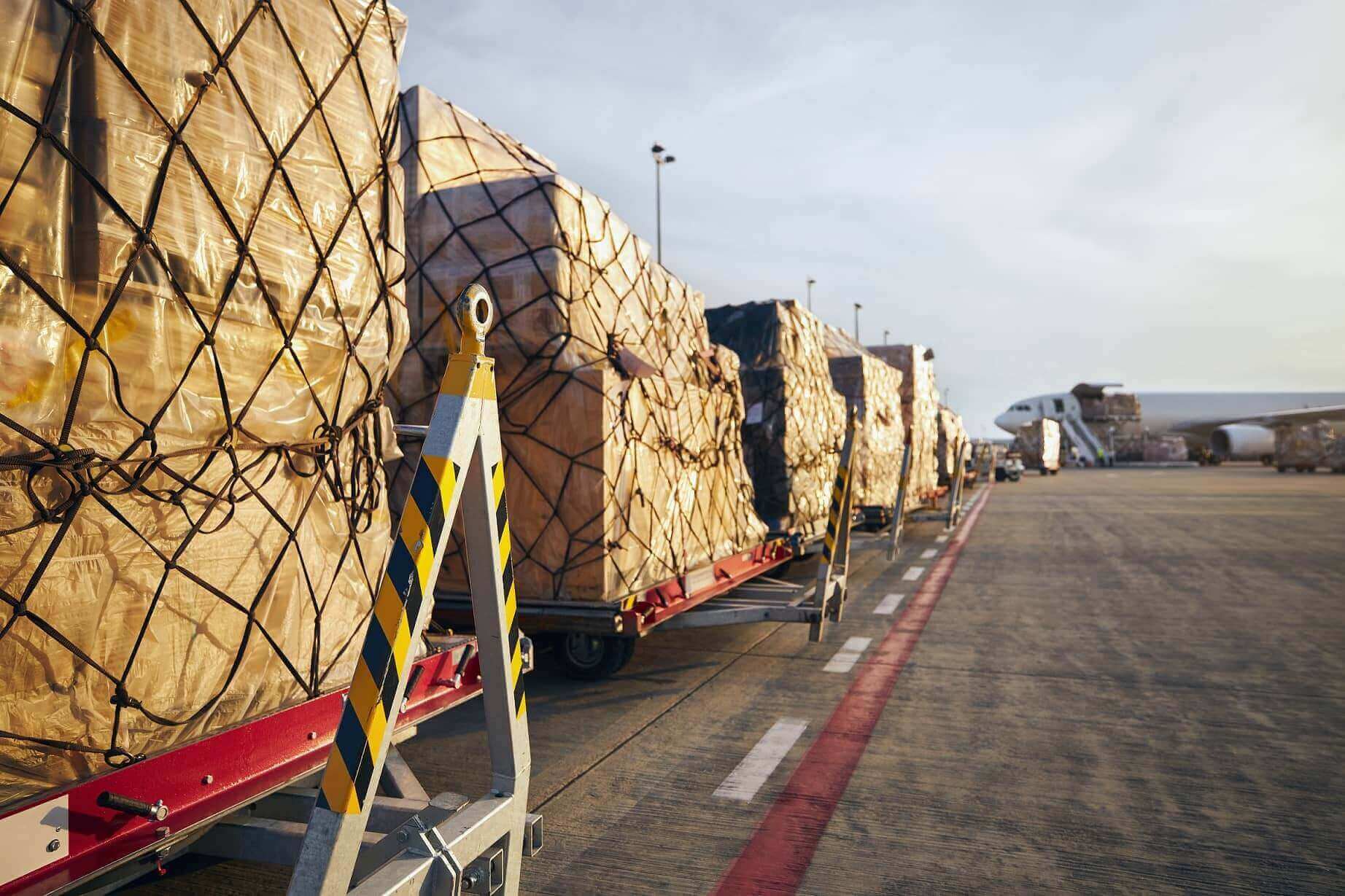Importing food from Nigeria to the United Kingdom is an exciting way to bring the rich, diverse flavors of Nigerian cuisine to an international audience. Whether you’re sharing bold spices and unique ingredients with friends, family, or customers, successfully navigating the process requires understanding the rules and regulations governing international food shipments. This can be a daunting task, but with the right information and preparation, you can ensure a smooth and hassle-free experience.
By the end of this article, you’ll have a clear understanding of:
- What food items can and cannot be shipped from Nigeria to the UK – Learn about the foods that are permissible under UK import regulations, including popular Nigerian ingredients like dried fish, spices, and packaged snacks. We’ll also highlight restricted or prohibited items, such as certain fresh produce or animal products, to help you avoid potential issues.
- What you need to ship food to the UK – Discover the essential requirements for shipping food internationally, including export permits, packaging standards, and certifications that demonstrate compliance with UK food safety laws.
- The step-by-step process for shipping food to the UK – Get a detailed breakdown of the process, from preparing your items for shipment to dealing with customs declarations and ensuring timely delivery to your intended recipients.
Permissible and Prohibited Nigerian Foods for UK Import
The following general guidelines, as outlined on the official UK government website (gov.uk), provide details on which food items are permitted, restricted, or prohibited for importation.
-
Permitted Items
The following items can be brought into the UK, provided they are appropriately packaged and meet all labeling and safety requirements:
- Bread – Plain bread is allowed, but sandwiches containing meat or dairy fillings are not.
- Cakes – Cakes without fresh cream are permissible.
- Biscuits – Including plain and flavored varieties.
- Chocolate and Confectionery – Allowed unless they contain significant amounts of unprocessed dairy products.
- Pasta and Noodles – Permitted unless mixed or filled with meat or meat-based products.
- Packaged Soup, Stocks, and Flavorings – Allowed as long as they do not contain restricted ingredients.
- Processed and Packaged Plant Products – Examples include frozen plant material and packaged salads.
- Food Supplements with Animal Products – Items such as fish oil capsules are allowed in small quantities.
- Prohibited Items
The following items cannot be imported into the UK under any circumstances:
- Meat or Meat Products – Including fresh, dried, or processed forms.
- Milk or Milk-Based Products – Prohibited except for powdered infant milk, infant food, or special dietary food required for medical reasons (subject to restrictions).
-
Restricted Items
Certain items are allowed, but only under specific conditions or weight limits:
- Honey – Up to 2kg per person.
- Powdered Infant Milk, Infant Food, or Special Medical Foods – Allowed up to 2kg per person, provided they are in unopened, branded packaging and do not require refrigeration before use.
- Shellfish and Snails – Must be preserved, cooked, or processed, with up to 2kg per person allowed.
- Frogs’ Legs – Only the back (hind) part of the frog with skin and internal organs removed.
- Insect Meat – Up to 2kg per person.
- Fish and Seafood – Up to 20kg per person, including fresh gutted fish, dried or cured fish, and processed seafood like lobsters and prawns.
-
Fresh Fruits and Vegetables
Most fresh fruits and vegetables require a phytosanitary (plant health) certificate to be imported. However, the following can be brought into the UK without a certificate:
- Fruits – Pineapple, kiwi, coconut, citrus fruits, kumquat, persimmon, durian, mango, banana, plantain, dates, guava, and passion fruit.
- Processed and Packaged Plant Products – Examples include packaged salads and frozen plant materials.
-
Endangered Species and Special Items
Foods and animal products protected under the Convention on International Trade in Endangered Species of Wild Fauna and Flora (CITES) require permits or certificates. These include:
- Caviar and Eel Fillets
- Beauty Products Containing Caviar Extract
- Edible Cacti – For example, prickly pear.
These regulations are based on official guidelines provided by the UK government. Always consult the latest updates on the gov.uk website or contact UK customs if you’re uncertain about a specific item to ensure compliance and avoid potential issues.
What You Need to Ship Food Items to the UK
Here’s what you’ll need to successfully import food from Nigeria to the UK:
-
Valid documents
Obtain commercial invoices, packing lists, and certificates of origin. For specific items like animal-derived products or plants, you may also need health or phytosanitary certificates.
-
Customs registration
Register with the UK government’s customs system to submit import declarations and manage shipments online.
-
UK importer of record
Have a UK-based party responsible for ensuring import requirements are met.
-
Shipping partner
Choose a reliable shipping company experienced in handling international food shipments.
-
Compliant food items
Ensure the food items meet UK regulations, including ingredient restrictions, labeling, and food safety standards
-
Proper packaging
Use appropriate containers, cushioning materials, and labeling that comply with UK regulations.
-
Pay customs duties and taxes
Be prepared to pay applicable customs duties, excise taxes, and VAT on your food imports.
Recommended reading: How to export from Lagos to UK
How to Package Food for Import from Nigeria to the UK?
Proper packaging is crucial to ensure that your food items arrive in the UK safely and in good condition. Here’s a step-by-step guide on how to package food for import from Nigeria to the UK:
-
Choose the Right Containers
Select appropriate containers for your food items, based on their size, shape, and sensitivity to temperature or impact. Use durable, food-grade materials like plastic, glass, or metal for packaging.
-
Use Air-Tight Containers
Opt for air-tight containers to protect your food items from moisture, pests, and spoilage during transit. This is especially important for items like dry foods, spices, and canned products.
-
Pad Your Packages
Cushion your food containers using packaging materials like bubble wrap or foam to absorb shock and prevent breakage during transit. Ensure there is no movement inside the package.
-
Separate Food Items
If you are shipping multiple items, separate them into individual containers and seal them securely to prevent cross-contamination and spoilage.
-
Label Your Containers
Clearly label each container with the item name, ingredients, production and expiration dates, and any relevant allergen information. This helps UK customs officials identify the contents and verify compliance with regulations.
-
Use Insulated Packaging
If shipping temperature-sensitive items, use insulated packaging materials and cooling packs to maintain the appropriate temperature during transit.
-
Packaging Material
To minimize the risk of pests, the UK requires that packaging materials be free of bark, dirt or other contaminants. Do not use straw or sawdust for padding.
UK customs officials may inspect your food items upon arrival, so ensure they are easily accessible for examination.
READ MORE
How Does Shipping Work in Lagos?
How Do you Pack your Goods for Shipping?
How to Ship Food From Nigeria to the UK?

Follow these steps to ship food items from Nigeria to the UK:
-
Choose a Shipping Partner
Select a reliable shipping company experienced in handling international food shipments. Research and compare rates and services before making a decision.
-
Prepare Food Items
Ensure your food items meet UK regulations and are properly packaged with appropriate containers, cushioning materials, and labeling.
-
Complete Customs Forms
Fill out necessary customs forms and documentation, including commercial invoices, packing lists, and certificates of origin
-
Obtain Additional Certificates
If required, obtain health or phytosanitary certificates for animal-derived products or plants.
-
Submit Import Declarations
Register with the UK government’s customs system and submit import declarations for your food shipments.
-
Pay Customs Duties and Taxes
Be prepared to pay applicable customs duties, excise taxes, and VAT on your food imports.
-
Track Your Shipment
Monitor the progress of your shipment using the tracking information provided by your shipping partner.
Importing food from Nigeria to the UK can be a rewarding experience, allowing you to share the unique flavors and culinary traditions of Nigeria with loved ones or customers in the UK. By familiarizing yourself with UK regulations, selecting a reliable shipping partner, and ensuring all necessary documentation is in order, you can go with ease and ensure your food items arrive safely and legally.
Frequently Asked Questions
-
Q: Can I send homemade food?
While the UK allows the import of certain food items, shipping homemade food can be tricky. All food products must meet UK food safety and labeling requirements, including providing a complete list of ingredients, allergen information, and details about the production process. Homemade food products containing meat, dairy, or other animal-derived ingredients are subject to additional restrictions and may require veterinary inspections or certifications.
-
Q: Are there any food items I cannot send?
Yes, certain food items are prohibited or restricted from being shipped to the UK. For example, fresh meat, milk-based products, and most fruits and vegetables require specific certifications or are outright banned. Always check the latest regulations from the UK government to confirm what is permissible.
-
Q: How should I package food for shipping?
Food should be packaged in secure, food-safe containers to prevent contamination or damage during transit. Use airtight, leak-proof containers for liquids, and ensure that items are cushioned properly to avoid breakage. Label the package accurately with a full list of ingredients, packaging date, and any necessary certification information.









